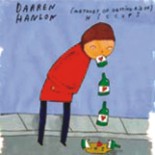|
Health
13 Techniques to Cure Hiccups
 Hiccups are little more than a reflex. You get them when the vagus nerve or one of its branches, which runs from the brain to the abdomen, is irritated. Experts say hiccups are most often a reaction to common digestive disturbances. And they're usually more a nuisance than anything else. Even infants hiccup, and the reflex continues, about three to five times a year, throughout life. Hiccups are little more than a reflex. You get them when the vagus nerve or one of its branches, which runs from the brain to the abdomen, is irritated. Experts say hiccups are most often a reaction to common digestive disturbances. And they're usually more a nuisance than anything else. Even infants hiccup, and the reflex continues, about three to five times a year, throughout life.
The home remedies used to stop hiccups are believed to work on two principles. One way to stifle hiccups is to overwhelm the vagus nerve with another sensation. The vagus nerve signals the brain that more important matters have arisen, so it's time to knock off the hiccups. Other methods interfere with breathing, increasing the amount of carbon dioxide in the blood. This probably causes the body to become more concerned with getting rid of the carbon dioxide than making hiccups.
Here are some tried-and-true remedies for hiccups from both "camps."
Sweeten the hiccups. Overloading the nerve endings in the mouth with a sweet sensation may do the trick. Have a teaspoonful of sugar, and if you can, place the sugar on the back of the tongue, where "sour" is tasted. This way, the sugar overload will pack the most punch.
Play "hear no evil." Some doctors recommend that you put your fingers in your ears to stop hiccups. But be gentle, and don't stick your fingers too far into your ears.
Get scared silly. Having someone surprise you can overwhelm the vagus nerve and put an end to hiccups.
Drink water. Swallowing water interrupts the hiccupping cycle, which can quiet the nerves. Gargling with water may also have the same effect.
Pull on your tongue. Sticking out your tongue and yanking on it may stop hiccups.
Tickle it away. Tickling the soft palate of the roof of your mouth with a cotton swab may do the trick. Or, if you're the type who enjoys getting tickled, have someone find your ticklish spots.
Hold your breath. Hold your nose and close your mouth--the way you would when you're ready to jump into a pool--for as long as you can or until you sense that the hiccups are gone.
Bag those hiccups. The old standby, breathing into a paper bag, is believed to work on the same principle as the breath-holding method. Both increase the amount of carbon dioxide in the bloodstream, and the body becomes preoccupied with getting rid of it and forgets about the hiccups.
Take an antacid. This method may be more effective if you choose one that contains magnesium, since the mineral tends to decrease irritation and quiet the nerves. One or two tablets should take care of hiccups.
Eat slower. If you eat fast, you are probably not chewing food thoroughly, which seems to cause hiccups. And rapid-fire feeding causes air to get trapped between pieces of food, which may set off the vagus nerve. Chew deliberately and take smaller sips of drinks to keep your air intake to a minimum.
Don't pig out. Overloading the stomach with food is another cause of hiccups. Some experts theorise that hiccups are your body's way of telling you to quit eating so your digestive system has time to process all the food you've forced down your gullet.
Avoid spicy foods. Some spices can irritate the lining of the oesophagus and stomach. At the same time, they can also cause acid from the stomach to leak into the oesophagus. The extra acid can bring on hiccups.
Drink only in moderation. Like spices, alcoholic beverages can cause a simultaneous irritation of the oesophagus and the stomach. And over time, excessive drinking can damage the lining of the food pipe.
When You Can't Stop the Hiccups
In rare cases, chronic hiccupping may be a symptom of a more serious health problem. Possibilities include infection; renal (kidney) failure; liver disease; cancer, including lung cancer; nervous system or abdominal problems, such as ulcers; and even heart attacks. Virtually anything that affects the head, chest, or abdomen can be implicated.
A common bout of hiccups usually lasts no more than an hour, and the hiccups occur at a rhythmic interval of about every 30 seconds. It's time to see a doctor if the hiccups continue with frequency for more than an hour or as many as twelve hours plus, keep you awake at night, or don't respond to home remedies.
In some cases, a physician will prescribe antacids or a sedative to help calm the digestive system. And in instances of severe, non-stop hiccupping, surgery may be performed to cut the phrenic nerve's link to the diaphragm in order to stop the spasms.
Source: www.HowStuffWorks.com
Copyright (R) thedailystar.net 2007 |
